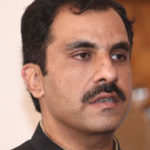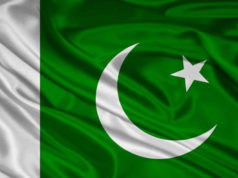 Muhammad Jahangir Kakar
Muhammad Jahangir Kakar
Public sector development has to be rooted in public who have the actual awareness of their issues. When development prioritization is let loose in the playful hands of political elite, the impact of development leading up to causing change is diluted. The most generous 7th NFC Award even failed to translate funds into real time tangible development. This is where the idea of Public Sector Development Program falls morbid in Balochistan.
The practice by the book is that each department frames its annual development programs, called PSDP proposals and submits them to the Planning and Development (P&D) department of the Government. The submitted proposals are scrutinized at length and then given approval to be included in the next development portion of the annual budget. This is what theory offers.
However, the practice is, as usual in other cases, entirely different. The schemes are set out by the respective MPAs and the Cabinet Ministers whose intentions are intention-wise, political; policy-wise, non measureable; and, need-wise, non-justifiable. The prerequisite motive deciding fate of the annual development proposals falls to be but abysmally political. Therefore, the elected members of the legislature, whose work it is to only frame legislations, gets the key to national exchequer. This is where politics gets financial and invites all the allied lucrative and corruptive ends and means.
This is very urgent that one comprehends what public sector development means and how crucial the same is. The whole development framework is based on the element of Public Money. This money is drawn from the public and as per the principle of universal human justice; it has to be spent back on public welfare. The process which draws this money from public is collective, indiscriminative and non-selective. The pattern of spending again has to be collective, indiscriminative and non-selective. Should this cyclic process be maintained, the “value of money” could only then be realized. Once the value of money is realized, there would be recognizable, visible and tangible change on public life.
Against the above, the practice is promoting political purposes through the source of public money. The element of public money is used and misused to hatch political ends. The concept of drawn-pattern and spent-pattern is utterly shattered. Thus, we do not see what change so lavish and giant development packages in every annual budget makes.
Besides being political, the course of putting together the annual public sector development program or plan is nonscientific too. A development scheme, as per the science of Public Policy, has to be a “public issue/problem”. The next stage brings up the strategy to resolving that problem. Once the strategy is defined, the execution takes place where Public Money comes into play. The ultimate end is that that public issue stands resolved. The policy being cyclic closes down one issue and opens up another. This is how the science of Public Policy has developed societies and improved life standards all throughout the world.
The practice takes on a contravention by leaps and bounds here too. The logical mathematics involved in recognizing the “public issue” to be set up as a “scheme” and to be resolved through the instrument of Public Money is always based on petty politics. The size of political approach and selection here gets down to domestic or household level even. A Street may be seen paved, and well-lit out against an adjacent street being both otherwise. The political sentiments tarnish bitterly the very soul of Public Money and convert the element into being “Private money”.
What follows is that the members of legislature pull all-out efforts to resort to piling as much of the funds as possible for their “constituencies.” They begin to develop the feeling as if those funds are their rights and their acquisition is therefore their duty. The development becomes constituency-based and the political parties in government and their constituencies get the flagrant development funds whereas the ones in opposition are given severe cold shoulder. The equation of drawn-pattern and spent-pattern is shaken severely and public development is narrowed down to private development. Amid such conditions, the elected representatives forget their core job of doing legislations and thus political maturity that comes through proactive House is never attained.
Ultimately, there is always hue and cry that despite the fact that so much is spent on public, yet it is the public which is not receiving any fruits. The reason involved here is that there is no systemic planning and organized development. Everything meant for public development always comes like bolt from the blue. The public development becomes the political development of the political parties. Politics is financed through public money.
Being a parliamentary democracy, the constitution strongly recommends for having local bodies which are the constitutional and legal forums of utilizing the public money. There are always slogans raised by the political elite that the provisions of constitution are to be respected but when it comes to local bodies, they are always reluctant to liberating them because the activation of local bodies would snatch the instrument of using and controlling the public money from the members of the legislature and it is never a compromise they are going to make in any near future.
Whether politics is good or bad, it at least should be free from being financial. The imperial passage of the politicians towards manipulating the Public Money needs to be immediately shut down if there has to be seen public development. Triple the size of what was given to Balochistan in the 7th NFC within the in vogue system of public-money-expenditure, and there would be seen nothing changing a commoner’s life by even a bit. The issues public are faced up with can be well gauged through the institution of civil service by such effective designs and self-accountable systems which can be developed. The non-political local bodies are the effective forums to then executing the plans for public development. After all, it is the public money at stake here and it is not mere politics. One wonders how and when to change.
Disclaimer: Views expressed in this article are those of the author and Balochistan Voices not necessarily agrees with them.
Share your comments!








